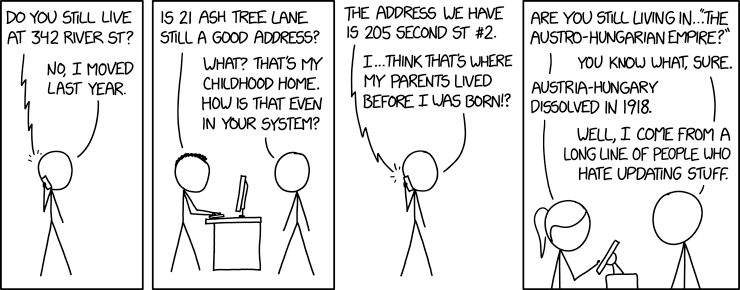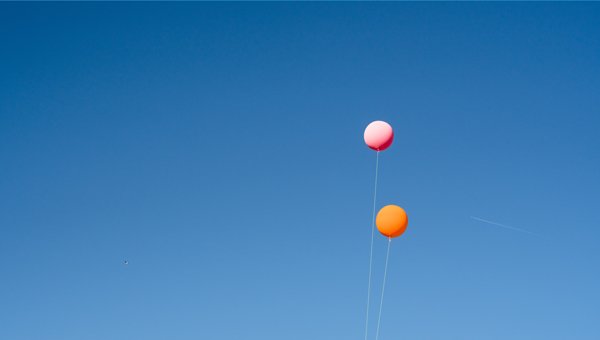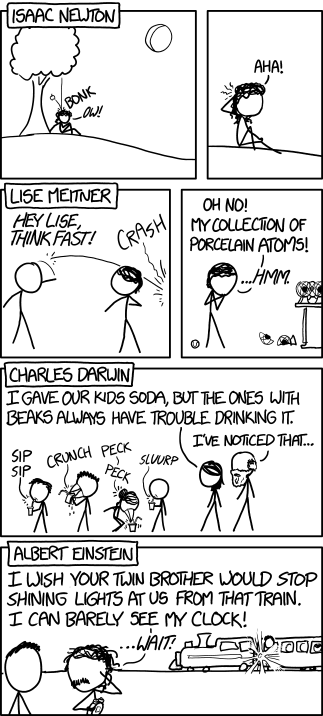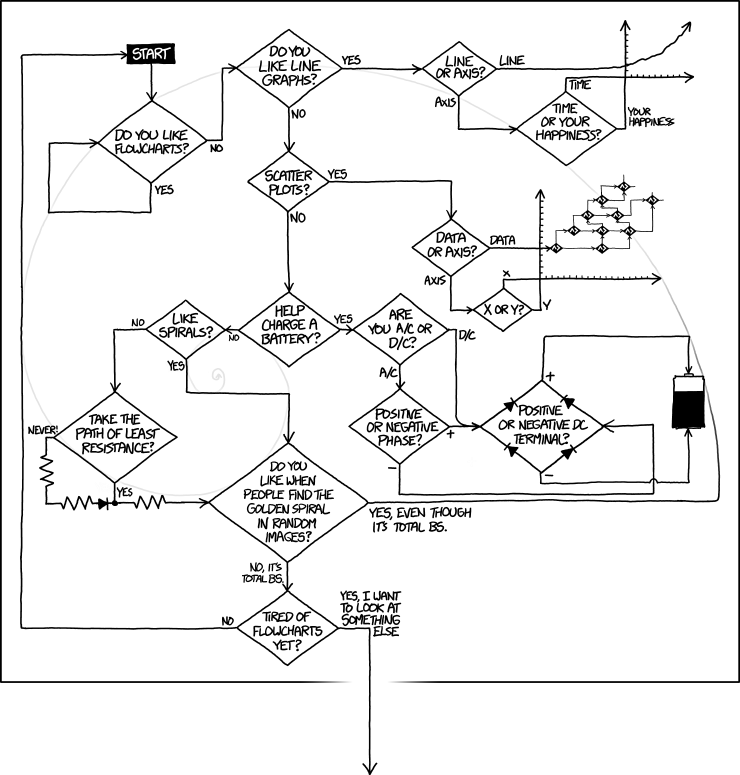
Amy Eklund
Shared posts
“Does It Spark Joy?” Is the Wrong Decluttering Question

When decluttering expert Marie Kondo published her ground-breaking book, The Life-Changing Magic of Tidying Up, hordes of grateful, stuff-encumbered readers around the world seized particularly on her question “Does it spark joy?”
That was the criterion Kondo proposed for deciding whether to keep something. Does an item in your possession give you a little thrill when you hold it in your hands? If so, hang on to it. If not, then So long, mustard-colored cardigan with the leather buttons.
Suddenly, it seemed like everyone who was flirting with the notion of decluttering their homes began talking about joy-sparks. Surely, in Kondo’s simple question was the razor to slice through indecision about what to keep and what to toss when pursuing a simpler lifestyle.
End of story. Or is it?
Let me begin by saying that, to me, any voice calling us to own fewer possessions is a welcome voice.
In America, we consume twice as many material goods as we used to 50 years ago. Over the same period, the size of the average American home has nearly tripled, and today that average home contains about 300,000 items.
Most homes contain more televisions than people. About 25 percent of two-car garages don’t have room to park even one car inside them, and still one out of every 11 American households rents off-site storage—the fastest-growing segment of the commercial real estate industry over the past four decades. Meanwhile, home organization, trying to find places for all our excess belongings, is now an $8 billion industry.
We’re at material overload and it isn’t fun like it looks in the commercials.
We live in a society where families are chronically stressed, tired, and rushed, with our excessive possessions compounding (if not creating) the problems. IKEA chief Steve Howard may have let a secret slip when he said that in the western world we’ve reached “peak home furnishings.”
The de-clutter, de-own movement is rapidly catching on, as evidenced, for example, by the popularity of Tiny Houses and the growth of organizations such as the National Association of Professional Organizers and the National Association of Senior Move Managers.
My family became converts to minimalism in 2008 after I wasted a beautiful Saturday morning cleaning out my garage, and a neighbor, seeing my frustration, made the casual comment “Maybe you don’t need to own all that stuff.” As I surveyed the heap of dusty things piled up in my driveway, out of the corner of my eye I noticed my son playing alone on the swing set in the backyard. And right then I had a life-changing realization:
Excess possessions do not bring extra happiness into life; even worse, they distract us from the things that do!
Today we live in a smaller house with only a third of the possessions we used to have. And we couldn’t be happier now that we have more money, more time, and more energy for the things that matter most.
Along the way, I’ve seen how Kondo’s trademark filter has prompted significant decluttering efforts both here and abroad. I’m thankful for that. Yet I can’t help but bristle at the phrasing because the question “Does it spark joy?” may actually rob tidying up of its fullest potential in our lives.
Specifically, we get three things wrong when we evaluate our possessions only by asking whether they spark joy or not.
1. We place our own happiness above everything else and continue to define it in terms of our possessions. Unfortunately, when the predominant question in our mind is “Does this make me happy?” we routinely fall short of actually realizing our happiness. In fact, recent research points to the biological fact that the best way to discover happiness is to help bring it about in someone else’s life.
2. Kondo’s suggested focus does not cull our consumeristic tendencies. Owning less is great, but wanting less is even better. Once we overcome the pull of consumption in our lives, we are free to pursue other passions. Unfortunately, the question “Does it spark joy?” does little to rewire our thinking in that regard. After all, when we’re standing in the department store, many things we pick up spark joy. That’s why we leave with so many of them in our shopping carts.
3. The filter may improve the peacefulness of our surroundings, but it does little to bend the trajectory of our lives. It rarely causes us to evaluate the motivations within that caused the clutter to build in the first place. And when we do not diagnose the cause of our clutter problem, we are bound to repeat it.
So let me propose an alternative question for us to ask ourselves when we’re making the hold/release call on any particular item in our possession. Rather than asking, “Does it spark joy?” let’s begin asking:
Does it help me fulfill a greater purpose with my life?
As I see it, we should be thinking about not just what we own but why we want to own it. What is our goal in life, anyway? What are we hoping to accomplish?
Sure, some people may only be interested in the pursuit of personal pleasure by acquiring as much stuff as possible, but I believe they represent a small minority. Instead, most of us desire to make a selfless contribution of some kind to a world that’s swelling with needs.
Two years ago, my wife, Kim, and I created a nonprofit called The Hope Effect that is changing orphan care by providing solutions that mimic the family. We would never have pursued this interest of ours if minimalism hadn’t freed up the time and money to do it. I’d still be spending my Saturdays cleaning and organizing. But today our lives are permanently different, and so are the lives of a growing number of parentless children around the world.
Orphan care is not everybody’s passion. But whatever others feel they were put on the planet to do, some of their possessions are either directly or indirectly helping them accomplish it, while others are holding them back. It makes the best sense to keep what aligns with their goal in life and get rid of the rest.
So when you’re holding one of your possessions in your hands, ask yourself, Does it help me fulfill my purpose? Does it help me craft a lifestyle in which I am able to build relationships and care for others, or might I be able to use my time, money, and energy in better ways?
Clear away obstacles one by one. Then advance toward your goal.
There’s a big difference between tidying up your home and freeing up your life. Instead of merely sparking some joy within yourself, light a fire in the world.
U.S. veterans to form human shield at Dakota pipeline protest
Giving

Eight-year-old Lily Kostopoulos helps fill bags of food to be distributed to those in need for Thanksgiving at a distribution center in Wilkes-Barre Twp., Pa. on Nov. 15. Wives, family members and girlfriends of Penguins players volunteered their time to help out the 36th annual “Thanksgiving Project” sponsored by the Commission on Economic Opportunity and the Weinberg Northeast Regional Food Bank. (Christopher Dolan/The Citizens’ Voice via AP)
6 Questions to Discover Your Most Meaningful Pursuits
Editor’s Note: This is a guest post from Jacob of JacobJolibois.com.

Minimalism removes the meaningless to make room for the meaningful.
Properly understood, it is easy to get caught up in the minimalist lifestyle. The idea of removing the meaningless to make room for the meaningful is attractive to many.
Before long, garbage bags line the edge of the road and the backseat of the car is loaded with boxes for Goodwill. But as we finalize the details on our latest eBay auction, we may sit back and wonder, “Now what?”
What was the point of this exercise anyway? What is the “meaningful” that we are supposed to be making room for? While some people are born knowing precisely what they want to do with their lives, some of us live in a constant state of misdirection, unsure of our purpose. Every shiny thing we try, we soon discover, is not what we thought it would be.
As a result, minimalism becomes just another shiny thing we discard when it doesn’t fulfill us. But, if we discover our meaningful pursuits, minimalism becomes a tool that empowers us to realize it.
Here then, are six important questions to help anyone discover their unique, most meaningful pursuits:
1. What currently leads to most of my happiness and fulfillment?
“This is the true joy of life, the being used up for a purpose recognized by yourself as a mighty one.” —George Bernard Shaw
Italian economist Vilfredo Pareto discovered a principle wherein 80% of results stem from 20% of the causes. Therefore, if we could pinpoint the 20% of activity that supplies 80% of our happiness and fulfillment, we could begin taking steps toward maximizing our time and resources within the 20% and moving away from the 80%. Be intentional about breaking down what makes you happy and leverage your minimalist lifestyle to make time for those activities.
2. What concern or problem do I feel most compelled to solve?
“An individual has not started living until he can rise above the narrow confines of his individualistic concerns to the broader concerns of all humanity.” —Martin Luther King, Jr.
Martin Luther King, Jr. illuminated the heart and soul of defining our “why”: others. In a world where individualistic concerns are championed, the world-changers and the misfits must unite around a cause larger than themselves. It is there that we will find an answer to our “why” that wells up inside of us and motivates us to make a difference.
3. What would I spend my day doing if I knew I couldn’t fail?
After answering this question, answer a second—what is the worst case scenario if you attempt it now and fail? I would be willing to bet that most of you will discover the worst case scenario isn’t all that bad. If we give our fears a name, they tend to shrink. They’re like the wizard behind the curtain—only an illusion.
“There are two types of people in this world. There are people who see the thing they want and there are people who see the thing preventing them from getting what they want.” —Unknown
4. What do I get so consumed with that I forget to eat or sleep?
“Just don’t give up trying to do what you really want to do. Where there’s love and inspiration, I don’t think you can go wrong.” —Ella Jane Fitzgerald
Purpose is found at the convergence of passion and service. What makes each of us unique is the sum of our individual experiences, traits, skills, interests, and aptitudes. We must tap into the practices that fulfill us and find a way to marry it with our cause (see the answers to questions 2 and 3). There we will find our “why”.
5. What does my perfect day look like?
“If you don’t know where you’re going, any road will take you there.” —Cheshire Cat, Alice in Wonderland
Outlining a clear picture of our “why” in practical terms gives us clarity and direction instead of a vague, romanticized goal. It allows us to dig into the details and honestly ask ourselves what we desire. With this clear destination in mind, we can be proactive in our journey.
6. What is one step I can take this week toward realizing my “meaningful?”
“A vision without a task is but a dream, a task without a vision is drudgery, a vision and a task is the hope of the world.” —From a church in Sussex, England, ca.1730
Now that we have named our values, burdens, fears, passions and goals, we have a better understanding of why we do what we do. Though we may not have all of the answers now, we have a place from which to start.
At this point, it is crucial to give ourselves a few small wins in the beginning to build momentum. Write down at least one step you can take this week toward your purpose. It could be reaching out to a friend, writing an outline, or setting aside $100.
The important thing is to start. And to discover more and more space to pursue it.
***
Jacob Jolibois writes at JacobJolibois.com, helping others craft a simple, yet impactful life. You can also find him on Twitter.
What We Consume Determines The Lives We Live

For most of my life, I gave little thought to the food that I ate. Whether for a meal or a late night snack, if I liked the taste, I’d eat it. This was the extent of meal planning.
Minimalism actually made me a healthier eater. It brought intentionality into my life in ways I never imagined—health, exercise, and diet included. Recently, I gave up sugar. I doubt the discipline will last a lifetime, but it’s been a helpful experiment just to see what life is like without it and how my body responds.
And my body will respond. It always does. Everything we place into our body has an effect on it—either positive or negative.
What we consume always determines the lives that we live.
We can see this, most easily, with the food that we eat.
But this is a principle with further reaching application than the food we eat. This is a truth that rings true with almost everything we choose to consume: books, music, television, websites, just to name a few.
Think about it. If you choose to read books and listen to podcasts primarily about business and productivity, your mind is going to sharpen its focus on those things. You will begin to see the world in this way and act accordingly.
If you choose to receive your news every evening from the Drudge Report or Fox News, you will arrive at a much different view of the world (and political parties) than someone who consumes their news exclusively from MSNBC. Equally so, if The Daily Show is your only source of world news, your worldview will become defined by it.
Even the music we listen to shapes our minds and our hearts. It carries dramatic influence on the focus of our mind throughout the day.
I think this is important. What we choose to consume determines the direction of our lives. We know this to be true concerning food so we adjust our diet and meal plans.
But for some reason, we are less vigilant when it comes to the other influences we allow into our lives. It is wise for us to pause often and review the influences we are allowing into our mind and our body. Let this serve as a warning.
But this post is not just a warning. It is also an invitation.
We can also use this truth to our advantage and use it to bring about the positive changes we desire to make in our lives.
Are you trying to get healthier? Intentionally consume books and articles that encourage you to do so. Lots of them.
Are you trying to become a better parent or spouse? Surround yourself with people who are trying to accomplish the same.
Are you trying to become more successful in a specific line of work? Absorb as much as you can about the topic.
More specifically, Becoming Minimalist is a community of people who are dedicated to finding more life by owning less stuff. But this approach to life is countercultural. Our society seems built and supported by the complete opposite approach. If we are not intentional concerning the influences we allow into our lives, we make the journey even more difficult.
Are you struggling to conquer the clutter in your home or overcome consumerism in your life? Choose carefully what you surround yourself with. Put down the sales catalogs and the glamour magazines. Mute commercials or turn off television altogether. Read more and more websites dedicated to owning less (I recommend Zen Habits, The Minimalists, Be More with Less, Frugaling, The Art of Simple, Slow Your Home, or No Sidebar). As you do, you will find the changes become more and more natural.
The changes we desire to make in life become increasingly possible when we change the influences around us. What we consume always determines what we become—whether for the good or the bad.
NASA Creates Movie Parody Posters Featuring Its ISS Expedition Astronauts
![]()
The image above may look like a poster for the upcoming Star Wars movie, but it’s actually a portrait NASA just released of its Expedition 45 crew. It’s a long-standing tradition of the space agency for its crews to pose for a wacky photo shoot for posters that are often parodies of popular Hollywood movies.
The shoots are a multi-national affair. This latest poster features astronauts from the United States, Russia, and Japan.
Here’s the first “movie poster” portrait that was released for Expedition 1 back in the year 2000:
![]()
This poster kicked off the tradition of wacky portraits that are released alongside official crew portraits. Here are some other posters that have been released over the years:
![]()
![]()
![]()
![]()
![]()
![]()
![]()
![]()
![]()
![]()
![]()
![]()
![]()
You can find the entire collection of expedition movie posters over on the NASA Space Flight Awareness website.
(via NASA via Laughing Squid)
A Collection of Stunning Landscape Photographs
This week’s collection of images to inspire you comes from 500px! Thanks to Evgeny Tchebotarev (founder of 500px) for letting us use these images, and for housing such a great website full of amazing images. To view any of them larger in all their glory, just click on the photo credit below the image.
Enjoy these amazing landscape photographs!
 Vernazza at sunset by Fabrizio Lunardi on 500px
Vernazza at sunset by Fabrizio Lunardi on 500px
 First Contact by Max Rive on 500px
First Contact by Max Rive on 500px
 Zaanse Schans by Iván Maigua on 500px
Zaanse Schans by Iván Maigua on 500px
I hope you notice something about many of these images. What is it that makes them great photographs? I can think of at least THREE qualities exhibited by some or most of the images above that make them a cut above the average landscape photo. Can you tell me what those three things are? What do you see that makes them stand out?
Share in the comments if you think you know what I’m thinking!
The post A Collection of Stunning Landscape Photographs by Darlene Hildebrandt appeared first on Digital Photography School.


































